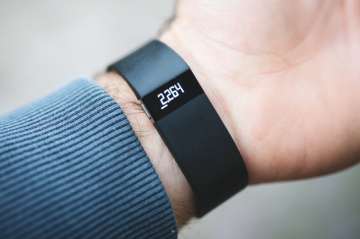Researchers have found that people who use pedometers to count their steps as part of a 12-week walking programme, can have a healthier, more active lifestyle later. According to the researchers, brisk walking for 30 minutes or more daily on most days of the week can help adults and older adults achieve important health benefits.
"We knew that pedometers could improve physical activity levels in the population in the short-term, but long-term health benefits require sustained increases in physical activity levels," said co-author of the study, Tess Harris, Professor of Primary Care Research at St George's, University of London.
For the study, published in the journal PLOS Medicine, researchers compared adults and older adults in two 12-week walking programmes who were using pedometers, with people who did not receive the pedometers and advice.
The result showed that the pedometer groups were still doing more physical activity three to four years later.
The researcher, led two trials called Pedometer Accelerometer Consultation Evaluation (PACE)-UP and PACE-Lift which had similar components -- pedometers, 12-week walking programmes based on behaviour change techniques and physical activity diaries.
The material, advice and pedometers were provided either by post or as part of practice nurse physical activity consultations.
The PACE-UP trial recruited 1,023 inactive 45 to 75-year-old primary care patients.
It found at three-year follow-up that those in both the postal and the nurse advice groups were still doing approximately an extra 600 steps per day and 24-28 extra minutes of moderate-to-vigorous physical activity weekly, in 10 minute bouts, than those in the comparison group who had received usual care.
The PACE-Lift trial recruited 298 primary care patients aged 60 to 75 years.
It found that at four-year follow-up, those in the nurse intervention group were doing approximately an extra 400 steps per day and an extra 33 minutes per week of moderate-to-vigorous physical activity in 10 minute bouts, compared to the group who had received usual care.
(With IANS Inputs)

